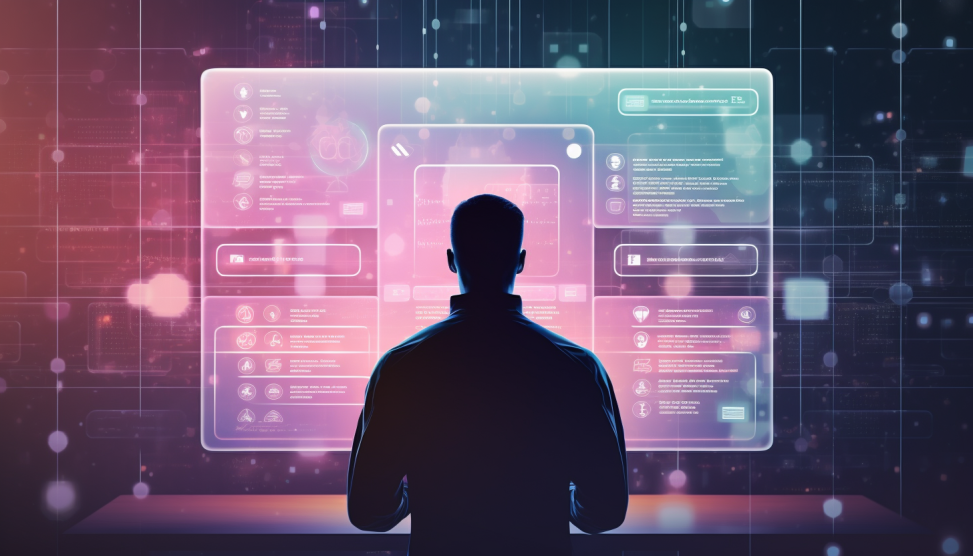With the continuous development of man-made consciousness and quantum registering, 2024 is ready for huge progressions as associations progressively take on and enhance utilizing these state of the art innovations. This mechanical flood, notwithstanding, is joined by an ascent in complex cyberthreats. A huge concern is pernicious entertainers' abuse of generative man-made brainpower — or gen computer based intelligence. Organizations are currently confronting horde complex difficulties: an upsurge in ransomware assaults, expanded state-supported digital surveillance, and the developing assignment of getting the steadily extending web of things (IoT). Simultaneously, the abuse of innovation is prompting the improvement of further developed malware for aloof observation, focusing on unambiguous frameworks, programming, and weaknesses.
Besides, coordinating computer based intelligence into cyberattacks is set to smooth out these activities, diminishing expenses and prompting more modern phishing and disinformation crusades. Mihoko Matsubara, chief cybersecurity strategist at IT services and consulting firm NTT, stated, "Cybercriminals and state actors are already taking advantage of generative AI to create phishing campaigns, write malicious code, or identify vulnerable systems to exploit." Artificial intelligence's Flip Side in Digital Guard Notwithstanding, artificial intelligence will likewise influence network safety methodologies and advances by improving discovery and investigation abilities. The outcome will enhance the defensive response to anomalous behavior, phishing, disinformation, and malware. It will likewise make ready for robotized, effective security activities, tending to labor force difficulties.
Generative AI has also been found to be useful for automating tasks, data analysis, and vulnerability research among cybersecurity professionals. For instance, research by NTT Security Property saw that generative simulated intelligence expanded the effectiveness and precision to distinguish phishing destinations rapidly, Matsubara advertised. Nicole Carignan, vice president of strategic cyber AI at Darktrace, added, "Gen AI opened the door to providing offensive tools to more novice threat actors." The viability of these instruments might be on par with those guiding them. She anticipates the use of offensive AI throughout the attack life cycle in the longer term. It could include utilizing normal language handling or huge language models to grasp composed language and to make contextualized stick phishing messages at scale.
Besides, coordinating computer based intelligence into cyberattacks is set to smooth out these activities, diminishing expenses and prompting more modern phishing and disinformation crusades. Mihoko Matsubara, chief cybersecurity strategist at IT services and consulting firm NTT, stated, "Cybercriminals and state actors are already taking advantage of generative AI to create phishing campaigns, write malicious code, or identify vulnerable systems to exploit." Artificial intelligence's Flip Side in Digital Guard Notwithstanding, artificial intelligence will likewise influence network safety methodologies and advances by improving discovery and investigation abilities. The outcome will enhance the defensive response to anomalous behavior, phishing, disinformation, and malware. It will likewise make ready for robotized, effective security activities, tending to labor force difficulties.
Generative AI has also been found to be useful for automating tasks, data analysis, and vulnerability research among cybersecurity professionals. For instance, research by NTT Security Property saw that generative simulated intelligence expanded the effectiveness and precision to distinguish phishing destinations rapidly, Matsubara advertised. Nicole Carignan, vice president of strategic cyber AI at Darktrace, added, "Gen AI opened the door to providing offensive tools to more novice threat actors." The viability of these instruments might be on par with those guiding them. She anticipates the use of offensive AI throughout the attack life cycle in the longer term. It could include utilizing normal language handling or huge language models to grasp composed language and to make contextualized stick phishing messages at scale.

On the other hand, it could include using picture arrangement to facilitate the exfiltration of delicate records once a climate is compromised and aggressors look for important material. "Artificial intelligence will make it feasible for machines to send special assaults at scale — consistently on, persistently transforming at machine speed," Carignan told Digitals. Key Patterns Toward a Superior Security Scene Man-made intelligence vows to affect both cybercriminal conduct and online protection procedures in 2024. NTT digital specialists see four additional critical patterns with broad effects on the security scene this year and then some.
According to NTT Chief Information Security Officer David Beabout, preserving confidence in election results will be a crucial factor. The capacity to approve and log results physically to resolve problematic issues will turn out to be progressively significant in the US. He stated to Digitals, "This shift toward resiliency and result validation is expected to gain more prominence in 2024." A second expectation for better online protection rests around carrying out a Zero Trust structure. The security scene is turning out to be progressively cloud-local, underscoring the requirement for upgraded verification strategies to counter arising dangers, for example, bypassing MFA through methods like JSON Web Token (JWT) infusion assaults.
As a consequence of this, Zero Trust will transform from a hot trend into a framework that is utilized in numerous parts of businesses to enhance security defenses. "Zero Trust is as of now not a popular expression, however a center idea that associations will carry out to further develop their online protection measures," Taro Hashimoto, CSIS visiting individual and ranking director of network safety at NTT, told Digitals. Quantum Preparation for 2024 NTT's third network protection expectation for 2024 spotlights on the approaching quantum danger. The new year is probably not going to see far reaching reception of early quantum innovation by programmers and danger entertainers. In any case, an earnestness exists to plan for its appearance. Measures are in progress, with the White House giving an update training government organizations to start arrangements and NIST distributing draft renditions of a few potential post-quantum cryptography (PQC) calculations. Given the broad time expected to relocate frameworks, in 2024, we will see a proceeded with center around planning frameworks and applications for the reception of quantum figuring, as per Kazuhiro Gomi, president and Chief of NTT Exploration. "While the planning of dangers presented by adaptable quantum PCs is as yet speculative, the need to get ready for this danger is genuine," he told Digitals.
According to NTT Chief Information Security Officer David Beabout, preserving confidence in election results will be a crucial factor. The capacity to approve and log results physically to resolve problematic issues will turn out to be progressively significant in the US. He stated to Digitals, "This shift toward resiliency and result validation is expected to gain more prominence in 2024." A second expectation for better online protection rests around carrying out a Zero Trust structure. The security scene is turning out to be progressively cloud-local, underscoring the requirement for upgraded verification strategies to counter arising dangers, for example, bypassing MFA through methods like JSON Web Token (JWT) infusion assaults.
As a consequence of this, Zero Trust will transform from a hot trend into a framework that is utilized in numerous parts of businesses to enhance security defenses. "Zero Trust is as of now not a popular expression, however a center idea that associations will carry out to further develop their online protection measures," Taro Hashimoto, CSIS visiting individual and ranking director of network safety at NTT, told Digitals. Quantum Preparation for 2024 NTT's third network protection expectation for 2024 spotlights on the approaching quantum danger. The new year is probably not going to see far reaching reception of early quantum innovation by programmers and danger entertainers. In any case, an earnestness exists to plan for its appearance. Measures are in progress, with the White House giving an update training government organizations to start arrangements and NIST distributing draft renditions of a few potential post-quantum cryptography (PQC) calculations. Given the broad time expected to relocate frameworks, in 2024, we will see a proceeded with center around planning frameworks and applications for the reception of quantum figuring, as per Kazuhiro Gomi, president and Chief of NTT Exploration. "While the planning of dangers presented by adaptable quantum PCs is as yet speculative, the need to get ready for this danger is genuine," he told Digitals.


